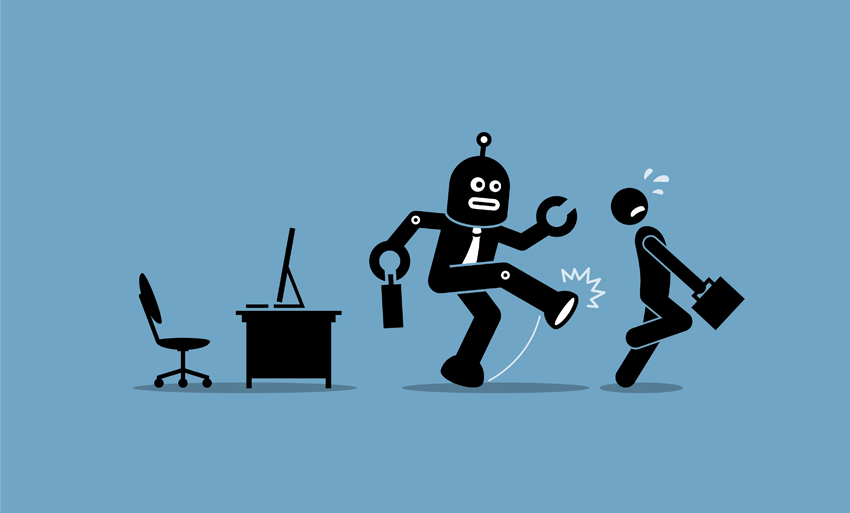
5 common artificial intelligence misconceptions busted
Artificial intelligence (AI) is a rapidly advancing field that permeates various aspects of society. Despite this, misconceptions about AI persist and hinder the general public’s understanding.
Let’s discuss common myths about artificial intelligence that aren’t true and provide a deeper understanding of what AI can do and achieve.
Myth 11
Artificial intelligence is essentially human-like.
One of the common myths about artificial intelligence that isn’t true is that AI systems are like humans in their thinking and decision-making. While AI has come a long way in mimicking human behaviour in specific areas, it is crucial to note that AI operates based on algorithms, data, and computational power. These systems do not possess human-like consciousness, emotions, or intuition.
AI can process large amounts of data quickly and efficiently, enabling it to excel at pattern recognition, making predictions, and solving problems. However, AI does not inherently possess a complex understanding of the human experience.
Myth 21
AI will replace most human jobs.
Another one of the common myths about artificial intelligence that isn’t true is the belief that AI will inevitably lead to massive job losses for humans. While it’s true that AI and automation have the potential to replace certain tasks, it does not mean that entire professions will disappear.
Instead, AI is expected to augment human abilities, allowing us to work more efficiently and effectively.
AI can take over repetitive and mundane tasks, allowing humans to focus on the creative, strategic, and interpersonal aspects of their work.
Similarly, AI is projected to create new job opportunities in fields such as AI development, data analysis, and cyber security. The key to navigating the changing job landscape is adaptability and continuous learning.
Myth 31
AI can be unbiased and objective.
The notion that AI systems are immune to biases is another one of the common myths about artificial intelligence that isn’t true. AI algorithms are designed and developed by humans, who inevitably have their own biases and preferences.
Further, AI systems are trained on data sets that may be biassed, which can then be inadvertently incorporated into the AI’s decision-making process.
To mitigate the risk of biassed AI, developers must be aware of potential biases in their design process and strive to create diverse and inclusive data sets. Transparency, accountability, and oversight in AI development ensure that AI systems function ethically and responsibly.
Myth 41
AI can solve all of our problems.
Some individuals believe that AI is the solution to all of our world’s problems. However, this is another one of the common myths about artificial intelligence that isn’t true. While AI has shown immense potential for improving various aspects of our lives, it is not a panacea for all of society’s ills.
AI can contribute to advancements in healthcare, transportation, and education, but it cannot address more profound issues such as poverty, inequality, or environmental degradation.
AI should be viewed as a tool that can be leveraged in conjunction with human ingenuity, creativity, and compassion to tackle complex challenges. Solely relying on AI for problem-solving will lead to disappointment and may inadvertently contribute to a growing technological divide.
Myth 51
AI will inevitably lead to a dystopian future.
The final entry in this list is the belief that AI will result in a dystopian future where machines have taken control. While this narrative has been popularised in science fiction, it is essential to separate fiction from reality.
Human decisions and policies influence the development and deployment of AI. As a society, we have the power to shape how AI is used and regulated.
By prioritising ethical considerations, transparency, and accountability, we can guide AI development to benefit humanity rather than harm it.
To counteract dystopian fears, governments, organisations, and individuals should collaborate to create AI policies that focus on human rights, privacy, and the equitable distribution of AI’s benefits.
Encouraging cross-disciplinary cooperation among AI developers, ethicists, and policymakers ensures that AI technology is developed and deployed responsibly.
Final Thoughts
Debunking these common myths about artificial intelligence is essential to fostering a more accurate and nuanced understanding of AI’s capabilities and limitations. By dispelling misconceptions, we can better navigate the AI landscape, ensuring that the technology is a powerful tool that complements human abilities and contributes to societal advancement.
As AI continues to evolve, we must remain informed and engaged, guiding its development to align with our values, needs, and aspirations.
Abhishek Anand is the founder of Skill Bud Technologies Pvt. Ltd. He is also an author, speaker and mentor.